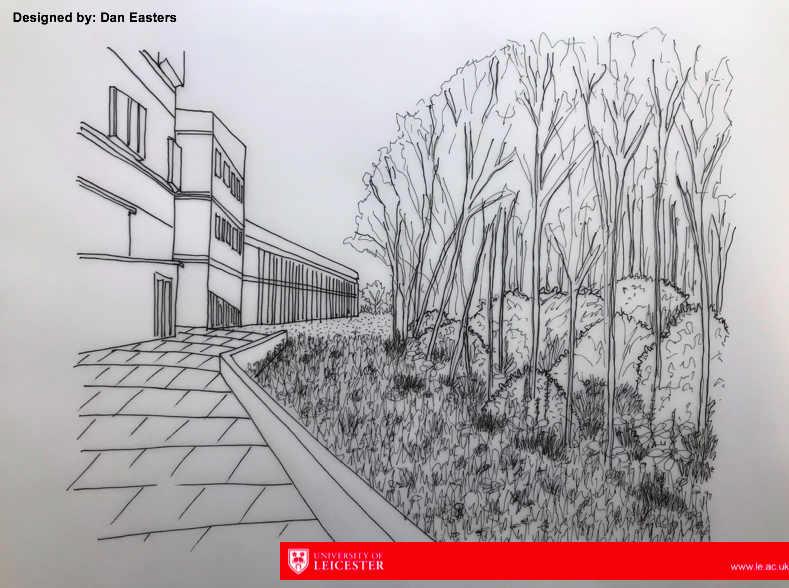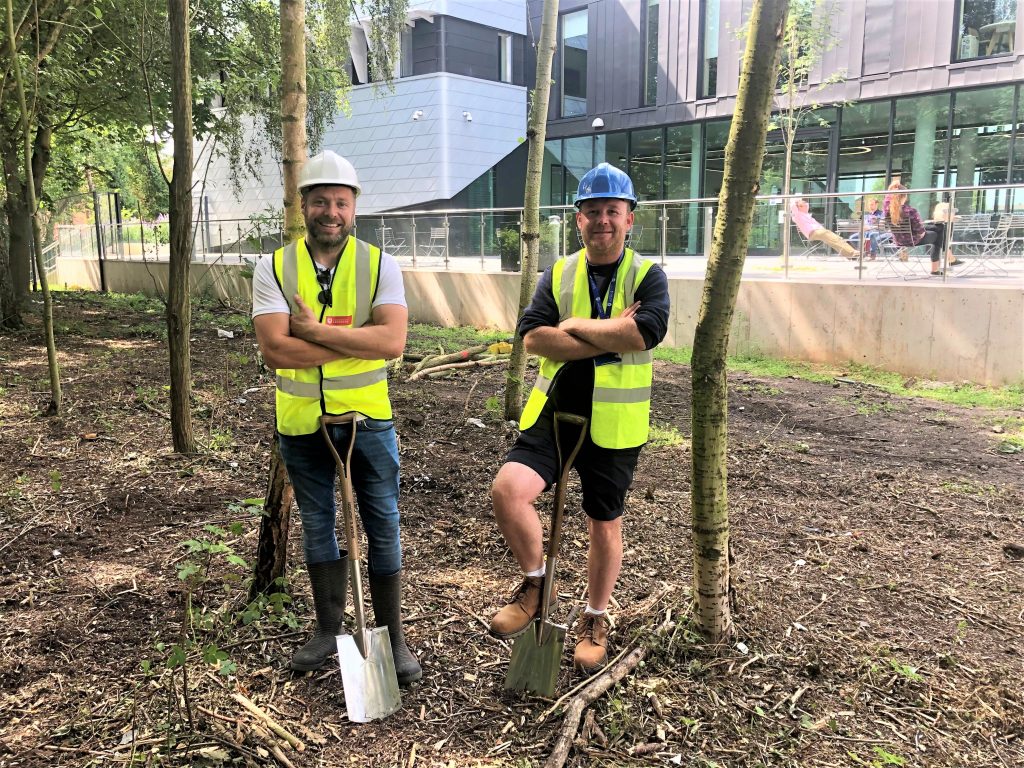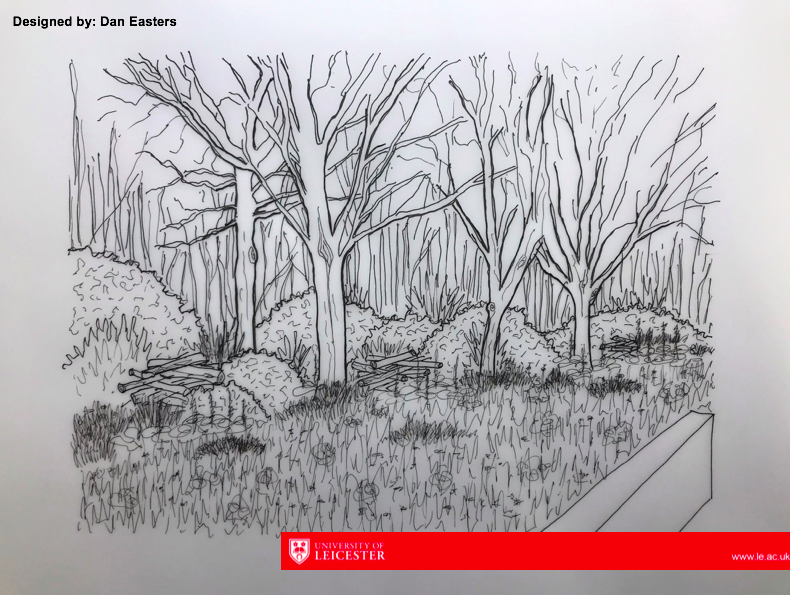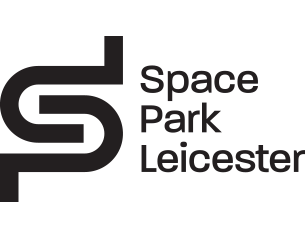Space Park Leicester embraces nature with £20,000 biodiversity project

The grounds of a new research and innovation centre launched to support Leicester’s fast-growing space industry are to be transformed into a wildlife friendly zone
More than 2,500 tree and shrub species will be planted around the University of Leicester’s Space Park Leicester to improve the site’s biodiversity values and enhance the land for future generations.
Over the next two months, 9,000 UK native woodland bulbs and an extensive amount of wildflower seeds will also be planted to spruce up the Ellis Meadows Spinney that surrounds the park.
As part of the project, which is funded by the Natural Environment Research Council (NERC), a number of self-seeded trees will be removed, however they will be repurposed to help create hedgehog friendly habitats. Removing the trees allows the woodland to breathe and increases the value to wildlife.
The renovated grounds will also transform views for users of Space Park Leicester and the local community which surrounds the riverside site, close to the National Space Centre.

Dan Easters, University of Leicester’s Assistant Gardens and Grounds Manager, said: “Turning these areas into a wildlife haven will be great for Space Park Leicester going forward.
“Supporting the local environment is a great way to encourage different habitats to the site.”
He added: “We believe that this project will have a real positive impact on both the local wildlife population and also the local community which surrounds Space Park Leicester.
The £20,000 native planting project is already well underway, having been approved by Leicester City Council, with the land being owned by the local authority.
Leicester Deputy City Mayor for Environment and Transportation, Cllr Adam Clarke said: “The Space Park project has helped put Leicester on the map in terms of innovation and technology, and transforming the grounds by hugely improving its biodiversity is a fantastic element of the project.
“Much of the area is reclaimed former industrial land which has been vastly improved by the development of the Space Park, and this latest stage of environmental work will create a haven for wildlife for generations to come.”

The scheme is in-line with the Universities Biodiversity Policy & Design Guide, which focuses on urban and green space regeneration improvements.
Space Park Leicester has been designed to enable collaboration between University researchers and the private sector, creating high quality knowledge-based jobs, building the skills base and contributing to economic growth and resilience of the economy.
The project is being led by the University of Leicester in partnership with Leicester City Council and the Leicester and Leicestershire Enterprise Partnership (LLEP).


